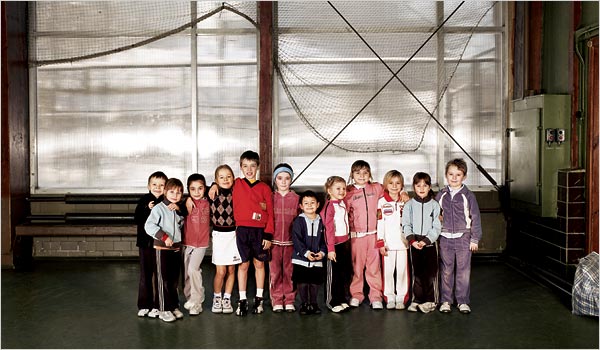In Russia, the Spartak Tennis club has produced more top-20 women players than the entire United States. Its key philosophy is that technique is everything and so students spend 3 years learning how to hit the ball correctly before ever competing.
Spartek Tennis Club has three key learning principles;
1) Slow it down – Training in slow motion.
2) Imitate – Practice swinging without the ball.
3) Games can wait – Never competing until you’ve perfected your technique.
If we apply this to the current schooling system you can start to see a few similarities emerging;
1) Slow it down – You start nursery at the age of 3 and finish compulsory schooling at 16.
2) Imitate – You dress in uniform to mimic the workplace. Your weekly schedule represents a 9-5 job. You take regular tests and move up or down depending on your grade (output).
3) Games can wait – You don’t enter the workplace until you’re deemed ‘fully’ trained (completed your GCSEs).
So how come every child that leaves school is not a super star ready to enter the working world?
Unfortunately, today’s schooling system is still training children the techniques to perform in jobs that no longer exists. It’s like we’re spending years training a child to catch perfectly and then putting them onto a football pitch and wondering why they don’t perform.
The connection economy demands creativity not compliance. If we want to stand any chance of improving our economy and the future for young people, our schooling system needs a radical overhaul and that starts with recognising that we’re playing a new game.


2 Comments on “Why schools aren’t producing superstars.”
I compleely disagree, on the sports training ideas and the relating it back to the education system. The article itself is contradicting itself. It seems to be advocating more vocational training, saying that we need to be “Training children” for the “…new game.”, but openly admits that its pupils don’t even play games before they’ve spent ages learning the techniques.
From a coaching perspective, nothing beats scrimmage. Someone who’s played 500 games is going to do better than the person who’s played 50 games and trained in drills for the same amount of time. You cannot replace in game experience with training. But similarly, the two aren’t mutually exclusive. Dropping someone into the game after hours of training, compared to putting someone in a game immediately, initially will favor the person with the training, but over the long term, things always even out. You haven’t altered or improved the learning curve, you’ve just manipulated it to be slightly less steep.
However I totally disagree in using this mantra of practical experience and vocational training in education for children, or indeed at any level. Training children to be able to work in the work place is born out of the same thinking that has cause the ideological shift in teaching from preparing children for life after school by teaching them, and to preparing children for exams so they can make it into the next tier of education.
Education should be far less restrictive and focused on aims and goals such as Exams and Jobs. It should educate people in a wide variety of topics so as to allow them to be able to think reasonably, make informed decisions, and therefore bring intelligence and diligence to a work force.
Hey Michael, firstly thank you for reading my blog – I was hoping to highlight the fact that schools already have this “sports training” idea in place but the kind of jobs they are training young people for are no longer available. Our new economy demands creativity over compliance which is why like you said it should be far less restrictive and more focus on what the individual is impassioned by and not just on exams and securing a job.
We currently teach children the rights answers, not their own solutions. Thinking reasonably restricts innovation and that’s what has to change.
Regards,
Cem